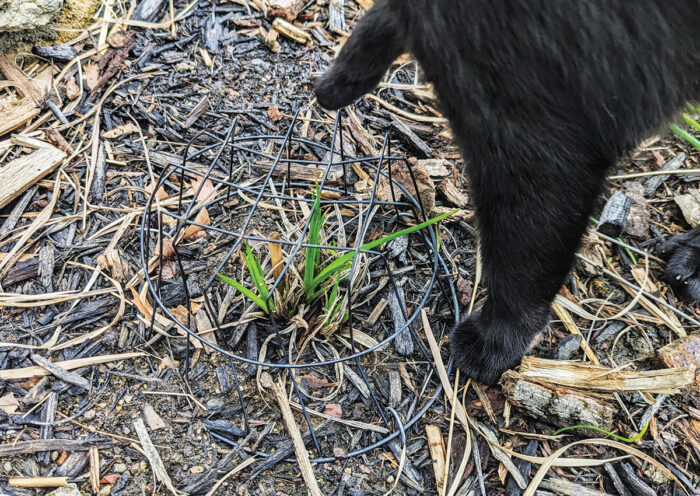
Winning Tip: Prevent ornamental grasses from becoming a kitty lounge chair
My neighbor’s cats like to visit when I’m gardening. While I love their company, I don’t love their fondness for lounging in my ornamental grasses, so I put wire hanging baskets upside down over the plants. The blades of the grass grow through the wire openings, and the dome shape of the basket makes it impossible for the cats to lie on and crush the plants. The hanging baskets can be found cheaply at dollar stores.
—Lydia Rapalyea, Fort Thomas, Kentucky
Repurposing volunteer sunflowers
I enjoy finding desirable volunteer plants in my landscape, especially sunflowers, which are much taller and stronger than any that I’ve tried planting from seed. The problem is that I don’t always appreciate their choice of location, which is often in the front of a bed or among shorter plants. If I leave them in place, I am mad at myself for doing so when they are towering over everything else in the bed in late summer. Weeding them out feels ungrateful. So after some trials, I have come up with a way to transplant these special plants successfully.
First, dig up the seedlings on a cloudy day when they are 6 to 8 inches tall. By this point, the stems should be the diameter of your finger. Transplant them to a location that will get full sun. Tie them to a support that is 10 to 12 inches tall. As they grow, you will need to provide a taller stake. The plants will appreciate some shade for the first few days. A paper bag or pet food bag with the end cut out works well. Make sure to secure it in the ground so it doesn’t blow away. Water daily for at least four days. Don’t be surprised if the plants are wilted initially. The staking will help their posture until they can adapt and rehydrate.
The details of this process are there to correct the mistakes that I have made over the years. I hope your experience will be effective on the very first try.
—Beth Clark, Hudsonville, Michigan
Super-clean hummingbird feeders
I usually clean my hummingbird feeders with a weak bleach solution and a toothbrush; however, there always seem to be little areas of mold that I can never reach. With the increased use of metal straws to decrease plastic straw use, I love that they now make small brushes to clean them. I can use these small brushes, bend them at any angle, and get into all the nooks and crannies of my hummingbird feeders.
—Stephanie Fried, Covington, Louisiana
What’s good for books can also work for seeds
Little free library boxes share the love of literacy and free books with a neighborhood community. They are popping up everywhere. In some places, they have also become vehicles for encouraging a love of gardening by providing free seeds and the exchanging and sharing of resources. I was so glad to find one in my neighborhood.
—Pat Cochran, Frederick, Maryland
Photos: courtesy of the contributors
We need your gardening tips!
Send your tips to [email protected] and please include high-resolution photos if possible. The prize for the winning tip is a one-year subscription to Fine Gardening with an All Access membership.
Fine Gardening Recommended Products

Fiskars 28" Power-Lever Garden Bypass Lopper and Tree Trimmer
Fine Gardening receives a commission for items purchased through links on this site, including Amazon Associates and other affiliate advertising programs.
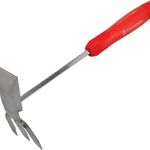
Fine Gardening receives a commission for items purchased through links on this site, including Amazon Associates and other affiliate advertising programs.
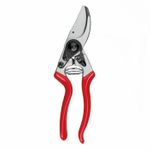
Felco Pruning Shears (F 9) - High Performance Swiss Made One-Hand Left-Handed Garden Pruners
Fine Gardening receives a commission for items purchased through links on this site, including Amazon Associates and other affiliate advertising programs.

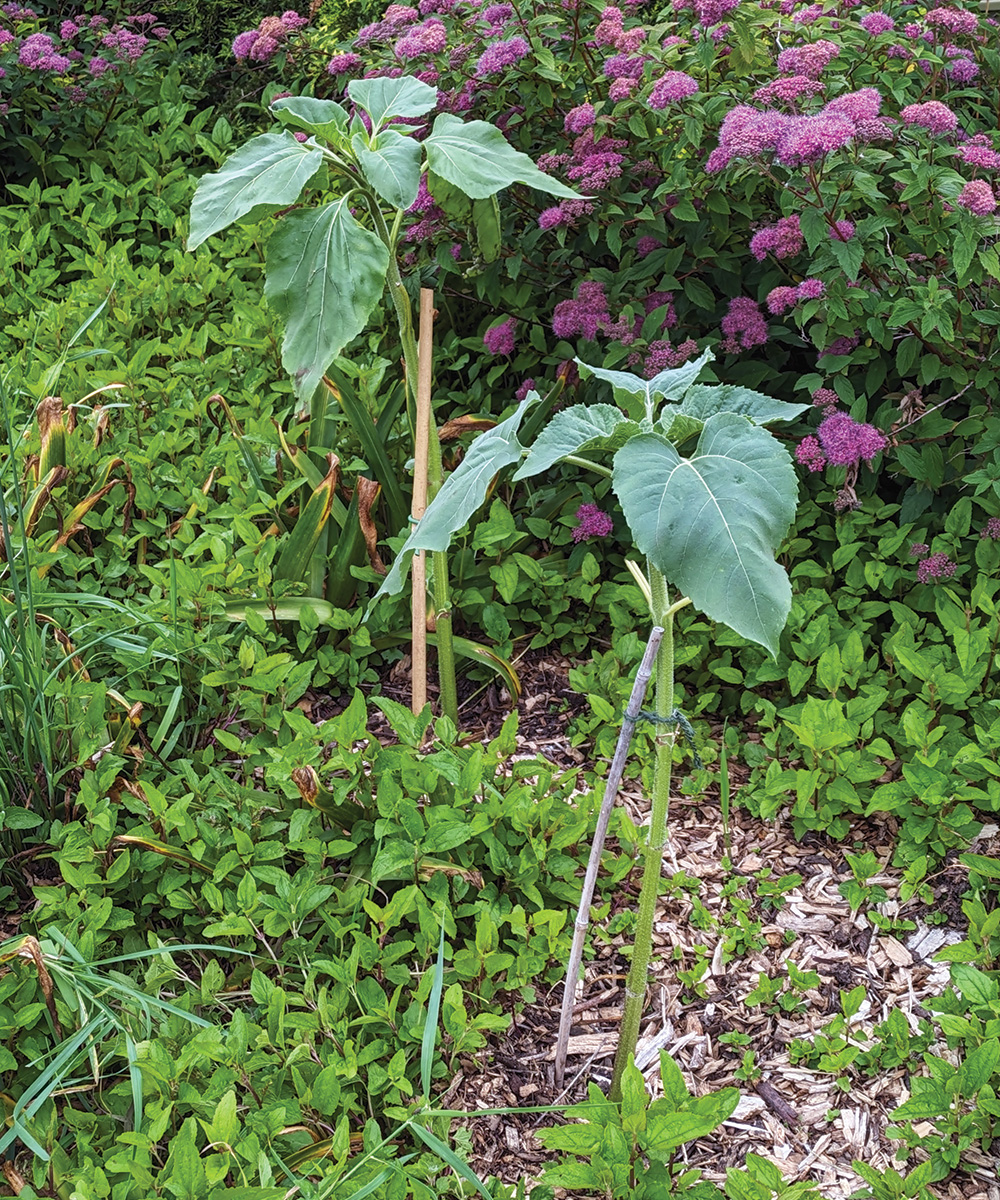

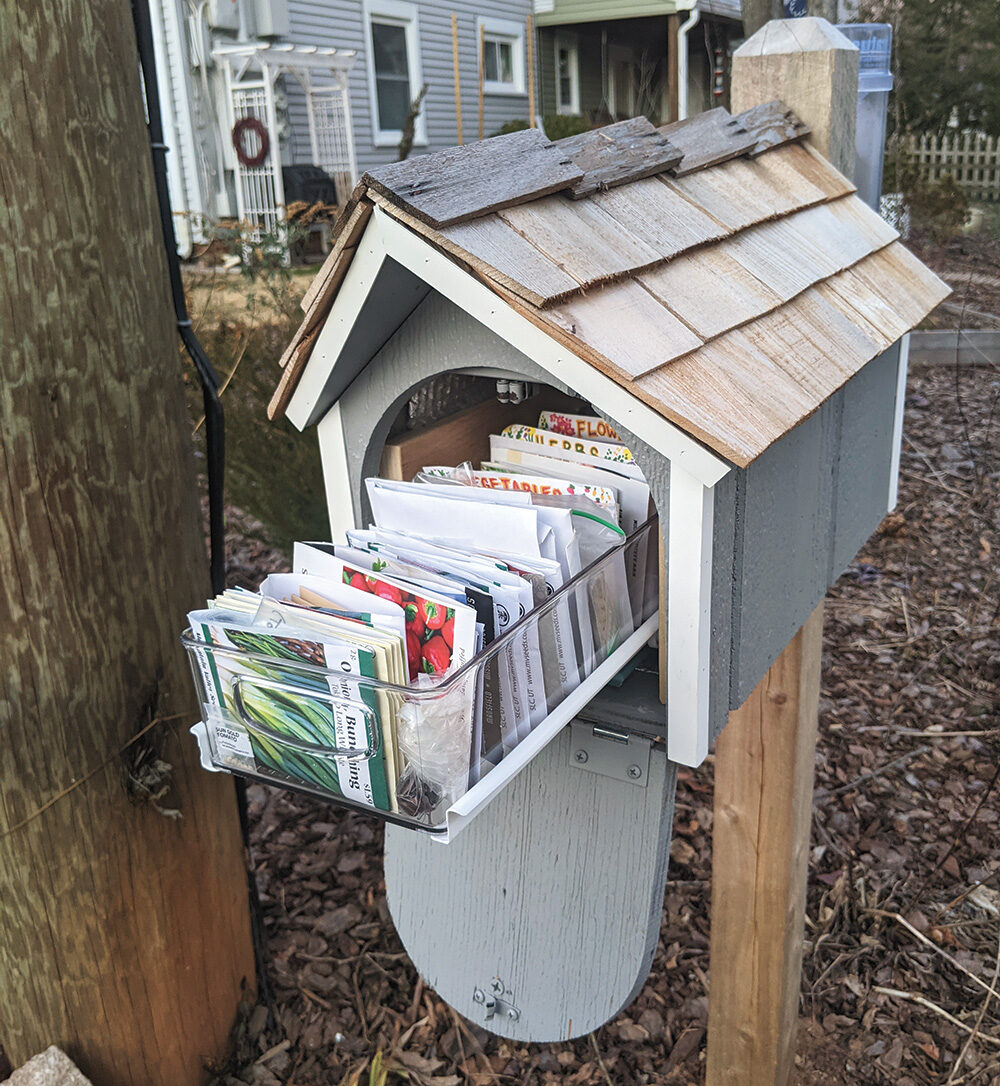




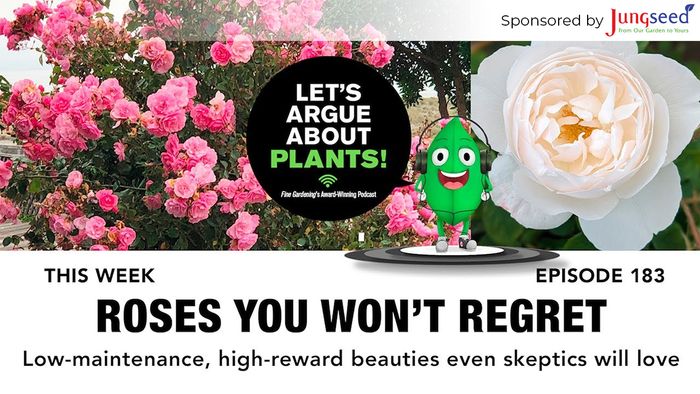
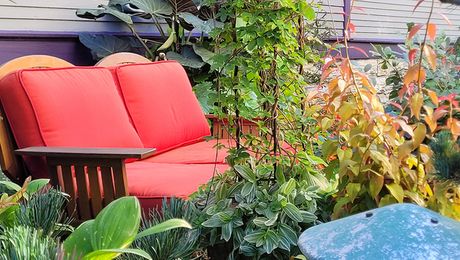
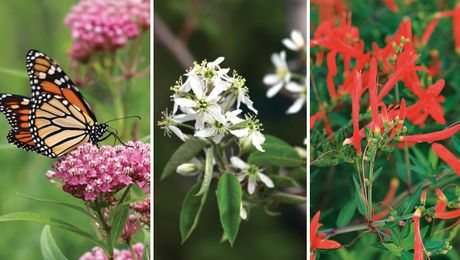










Comments
Log in or create an account to post a comment.
Sign up Log in